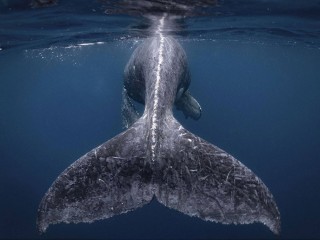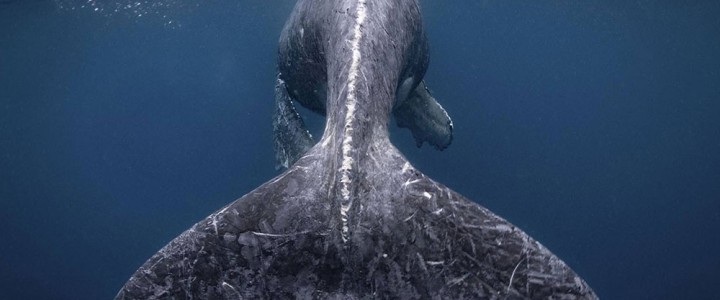Curso gratis Inglés National Geographic Interactivo nivel Medio Básico - A1-A2

Curso gratis para: Trabajadores y Empresas, consulta próxima convocatoria
Modalidad de realización del curso: -
Número de Horas: 180 Horas
Titulación: Diploma acreditativo con las horas del curso
Prácticas Profesionales en Empresa: Sí - Opcionales (consulta condiciones)
OBJETIVOS DEL CURSO GRATIS INGLÉS NATIONAL GEOGRAPHIC INTERACTIVO NIVEL MEDIO BÁSICO - A1-A2
Mejorar las destrezas generales del Inglés a nivel oral y escrito.
PRÁCTICAS EN EMPRESA
El curso Inglés National Geographic Interactivo nivel Medio Básico - A1-A2 dispone de 150 a 250 horas de Prácticas Profesionales en Empresa. Consulta con nuestros asesores de formación la posibilidad de realizar estas Prácticas Profesionales en su Provincia tras la finalización del curso. Las prácticas en empresa son opcionales y no obligatorias.
CONTENIDO DEL CURSO GRATIS INGLÉS NATIONAL GEOGRAPHIC INTERACTIVO NIVEL MEDIO BÁSICO - A1-A2
Nota: Contenido en inglés y gramática en español
UNIT 1: People
- Unit Goals: Meet people, ask for and give personal information, describe different occupations, describe positive and negative parts of occupations
- Grammar: Review of present tense to be. Be + adjective (+ noun). Possessive adjectives
- Vocabulary: Occupations, countries, nationalities, descriptive adjectives
- Listening: Focused listening: Personal introductions
- Speaking and Pronunciation: Asking for and giving personal information. Contractions of be: - 'm, -'re, -'s
- Reading: "People from Around the World".
- Writing: Writing about people's occupations and nationalities
- Vídeo Journal: "The Last of the Woman Divers".
UNIT 2: Work, Rest and Play
- Unit Goals: Talk about a typical day, talk about free time, describe a special celebration or festival, describe daily life in different communities
- Grammar: Review: Simple present tense. Prepositions of time. Adverbs of frequency
- Vocabulary: Daily activities. Party words. Celebrations and festivals
- Listening: Focused listening: A radio celebrity interview
- Speaking and Pronunciation: Talking about daily schedules and free time. Verbs that end in -s
- Reading: TED TALKS "Eric Whitacre: A Virtual Choir 2,000 Voices Strong
- Writing: Writing a descriptive paragraph about daily routines. Writing strategy: World web
- Vídeo Journal: "Monkey Business".
UNIT 3: Going places
- Unit Goals: Identify possessions, ask for and give personal travel information, give travel advice, share special travel tips with others
- Grammar: Possession. Imperatives and should for advice
- Vocabulary: Travel preparations and stages. Ordinal numbers. Travel documents and money
- Listening: General listening: Conversations at travel destinations
- Speaking and Pronunciation: Giving personal information for travel forms. Rising intonation on lists
- Reading: "Smart Traveler: Writing:
- Writing travel tips
- Vídeo Journal: "Beagle Patrol".
UNIT 4: Food
- Unit Goals: Give a recipe, order a meal, talk about diets, discuss unusual foods
- Grammar: Count and non-count nouns: some and any. How much, how many with quantifiers: lots of, a few, a little
- Vocabulary: Food. Food groups. Diets
- Listening: General and focused listening: Ordering a meal in a restaurant
- Speaking and Pronunciation: Role- play: purchasing food at a supermarket. Reduced forms: Do you have...and Would you like...
- Reading: "Bugs as Food".
- Writing: Writing a recipe
- Vídeo Journal: "Dangerous dinner".
UNIT 5: Sports
- Unit Goals: Describe activities happening now, compare every day and present-time activities, talk about favourite sports, discuss adventures
- Grammar: Present continuous tense. Stative verbs
- Vocabulary: Doing sports. Present-time activities. Team sports and individual sports
- Listening: General and focused listening: Everyday activities vs. today's activities
- Speaking and Pronunciation: Talking about what people are doing now. Discussing favourite sports. Reduced form: What are you...
- Reading: TED TALKS "Lewis Pugh: My mind-shifting Everest swim".
- Writing: Writing an e-mail
- Vídeo Journal: "Cheese Rolling Races"
UNIT 6: Destinations
- Unit Goals: Discuss past vacations, exchange information about vacations, use was/were to describe a personal experience, describe a discovery from the past
- Grammar: Simple past tense. Simple past tense of to be
- Vocabulary: Travel activities. Emphatic adjectives
- Listening: General listening: A vacation
- Speaking and Pronunciation: Comparing vacations. Describing personal experiences. Sounds of -ed endings. Reading: "The Cradle of the Inca Empire".
- Writing: Writing a blog
- Vídeo Journal: "Machu Picchu".
UNIT 7: Communication
- Unit Goals: Talk about personal communication, exchange contact information, describe characteristics and qualities, compare different types of communication
- Grammar: Verbs with direct and indirect objects. Irregular past tense. Sensory verbs
- Vocabulary: Communication. Electronics. The senses
- Listening: Focused listening: A radio call- in program
- Speaking and Pronunciation: Asking for contact information. Describing sights, sounds and other sensations. The /b/ and /v/, /l/ and /r/ sounds
- Reading: TED TALKS "Diana Reiss, Peter Gabriel, Neil Gershenfeld, Vint Cerf: The Interspecies Internet? An Idea in Progress".
- Writing: Writing a text message. Make a list
- Vídeo Journal: "Wild Animal Trackers".
UNIT 8: Moving Forward
- Unit Goals: Talk about plans. Discuss long and short term plans. Make weather predictions. Discuss the future
- Grammar: Future tense: Be going to. Will for predictions and immediate decisions
- Vocabulary: Short and long term plans. Weather conditions. Weather-specific clothing
- Listening: General listening: A talk show
- Speaking and Pronunciation: Talking about weekend plans. Discussing the weather. Reduced form of going to. Reading: "Future Energy".
- Writing: Writing statements about the future
- Vídeo Journal: "Solar Cooking".
UNIT 9: Types of Clothing
- Unit Goals: Make comparisons. Explain preferences. Talk about clothing materials. Evaluate quality and value
- Grammar: Comparatives. Superlatives
- Vocabulary: Clothing. Descriptive adjectives. Clothing materials
- Listening: Focused listening: Shoe shopping
- Speaking and Pronunciation: Talking about clothes. Shopping- at the store and online. Rising and falling intonation
- Reading: "Silk- the Queen of Textiles".
- Writing: Writing about buying clothes
- Vídeo Journal: "How your T-shirt Can Make a Difference".
UNIT 10: Lifestyles
- Unit Goals: Give advice on healthy habits. Compare lifestyles. Ask about lifestyles. Evaluate your lifestyle
- Grammar: Modals- could, ought to, should, must, have to. Questions with how
- Vocabulary: Healthy and unhealthy habits. Compound adjectives
- Listening: General speaking: personal lifestyles
- Speaking and Pronunciation: Discussing healthy and unhealthy habits . Asking and telling about lifestyles. Should, shouldn't
- Reading: "The Secrets of Long Life".
- Writing: Writing a paragraph about personal lifestyle
- Vídeo Journal: "The Science of Stress".
UNIT 11: Achievements
- Unit Goals: Talk about today's chores. Interview for a job. Talk about personal accomplishments. Discuss humanity's greatest achievements
- Grammar: Present perfect tense. Present perfect tense vs. simple past tense
- Vocabulary: Chores. Personal accomplishments
- Listening: Listening for general understanding and specific details: A job interview
- Speaking and Pronunciation: Interviewing for a job. Catching up with a friend. Reduced form of have
- Reading: "Humanity's Greatest Achievements".
- Writing: Writing about achievements
- Vídeo Journal: "Spacewalk".
UNIT 12: Consequences
- Unit Goals: Talk about managing your money. Make choices on how to spend your money. Talk about cause and effect. Evaluate money and happiness
- Grammar: Real conditionals (also called the First conditional)
- Vocabulary: Personal finance. Animals. Animal habitats
- Listening: Listening for specific details: At a travel agency. Listening for key information
- Speaking and Pronunciation: Making decisions about spending money. Talking about important environmental issues. Intonation, sentence stress
- Reading: TED TALKS "Michael Norton: How to Buy Happiness".
- Writing: Write about cause and effect. Writing strategy: Make suggestions
- Vídeo Journal: "The Missing Snows of Kilimanjaro".
- - Contenido del material:
- - Libro del Alumno: WORLD ENGLISH 1 con CD interactivo
- - Workbook: WORLD ENGLISH 1.
- - Libro de gramática con CD de ejercicios gramaticales
- - CD con solucionario del libro del alumno






